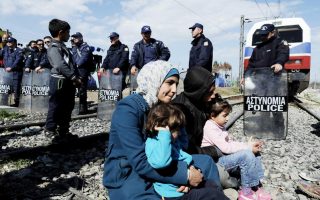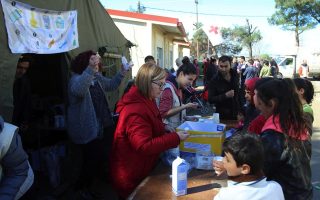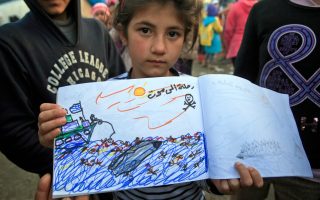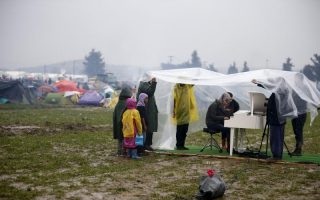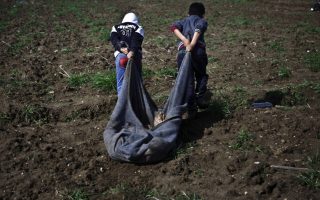Dejected and weary, refugees in Greece choose relocation
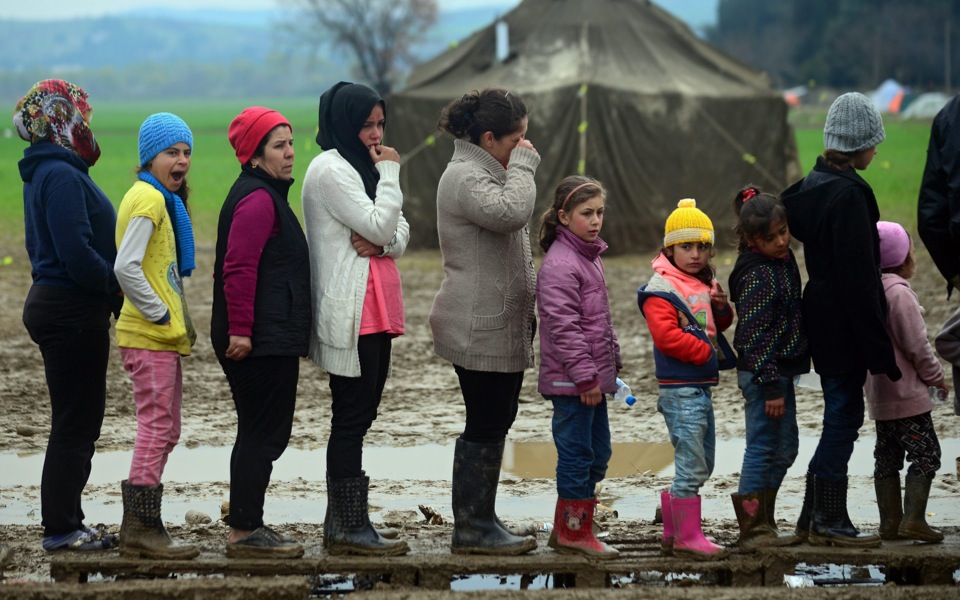
Ten days in the squalid Greek border camp of Idomeni were enough to convince Adel to put his dreams of dashing to Germany on hold and apply for the EUs refugee relocation scheme.
“It was unbearable,” says the 20-year-old finance student from Aleppo, one of a growing number of Syrian and Iraqi refugees who are expressing an interest in the sharing-out program that until now appeared stalled.
Adel is among a hundred-odd Syrian and Iraqis currently lodged at Hotel Edelweiss in Livanates, a coastal town nearly 150 kilometres (93 miles) north of Athens.
A family hotel, the Edelweiss is part of a program run by the UN refugee agency to accommodate 20,000 refugees eligible for relocation after being trapped in Greece by a domino effect of border closures along the migrant trail to northern Europe.
“Last week we had 650 applications compared to barely a hundred in February,” says Jean-Pierre Schembri, a spokesman for EASO or the EUs European Asylum Support Office.
EASO has doubled its presence in Greece, deploying 60 staff on islands where refugees arrive from Turkey, the port of Piraeus and refugee accommodation camps around the country.
The goal, says Schembri, is to limit the waiting procedure to a maximum two months, otherwise the refugees will lose interest and turn to smugglers for help.
So far, the numbers are not encouraging. Out of the 63,000 mainly Syrian and Iraqi refugees supposed to be farmed out from Greece in the space of two years, only 569 have been accepted by fewer than half of the EUs 28 member states.
Hardline states including Hungary, the Czech Republic, Poland and Slovakia have flatly refused to take any refugees.
Refugees cannot choose where they will end up in the EU but Adel, who spent 18 months in Turkey after fleeing his Syrian hometown of Aleppo, no longer frets about that.
“In Turkey, there was no future, just safety. It doesn't matter where I will finally end up as long as I can go forward,” he says.
Until last month, Syrians and Iraqis were permitted to travel through Greece and reach family members in Germany, Scandinavia and elsewhere.
Many Syrian and Iraqi men took advantage of this option and forged ahead, frequently leaving behind their wives and children to follow at a later stage.
But amid a raging debate in the EU over how many more refugees to accept after over a million people arrived from camps in Turkey in 2015, Former Yugoslav Republic of Macedonia and other Balkan states shut their borders to all exiles last week, trapping over 45,000 people in Greece.
Around a third of them are massed at the Greek border post of Idomeni, where a makeshift camp initially planned for 2,500 people now holds over 14,000. Refugees have described conditions at Idomeni as 'hellish'. Recurring rains have turned the overflowing camp into a quagmire. Thousands sleep in tiny tents in muddy fields and ditches and queue for hours just to get a sandwich.
Conditions at the Edelweiss are a huge improvement. The refugees have clean beds and warm meals, but time seems suspended for the refugees as they await news on their asylum applications.
“We eat, we sleep, we grow tired,” says Adel.
Besides a stroll by the sea, and watching the children play, there is little to do.
“There has been no information at all. We’ve been here a week and no one has contacted us,” says Amina Khalaf, a 37-year-old who escaped Aleppo with her husband and two daughters after she was hurt in a bombardment.
“I’m afraid that more people will apply for the program and that suddenly, there will no longer be room for us,” says Zahraa Al Bayati, a 40-year-old mother of three from Iraq. “They may well forget about us here,” she adds as around 40 children shout and run about.
The EUs migration commissioner Dimitris Avramopoulos on Tuesday urged member states to “scale up” the scheme.
“We have adopted all together a relocation mechanism that must work immediately. So I call on member states to provide us with more pledges and start implementing immediately this plan,” Avramopoulos said during a visit to Idomeni.
On Thursday, European leaders are holding a summit with Turkey, hoping to curb massive migration flows that have plunged the bloc in crisis.
But Zahraa harbours no illusions that the summit will make any difference to her and others like her.
“There is no hope that the borders will reopen,” she says.
[AFP]
